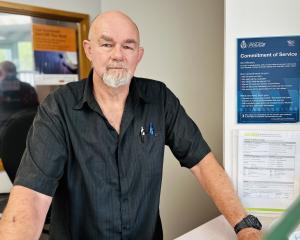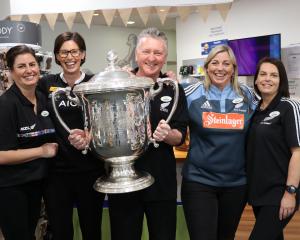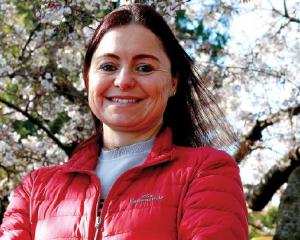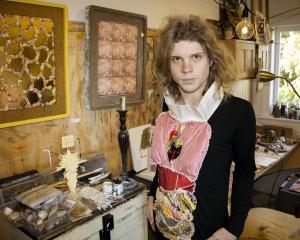
What motivated you to pursue a career in optometry?
I wanted to be a plumber or an electrician, I wanted to do practical things and make some money. My father (John Howie Veale) said ‘No, you’re going to be a professional’. He never got to university. I was forced to go to Dunedin and do medicine. You had to do medical intermediate before you got into medical school. I did microbiology, botany, psychology and zoology so by the third year I had a degree in all those subjects. I got As but I didn’t get into medical school. Perhaps I wasn’t dressed right. I got into dental school but I told dad: ‘I can’t look into people’s mouths all my life’.
He said there was an optometry school starting up in Auckland, I went to see his optometrist and I thought: ‘That’ll do me’.
What is the distinction between an optometrist or an ophthalmologist?
An ophthalmologist is an eye surgeon. They train for about 15 years. You do six years doing medicine and then you’ve got to specialise and you’ve got to get into the ophthalmology course. It’s a bit like orthopaedics, it’s pretty hard to get into the course. It’s a bit like veterinary medicine. We’ve got a fantastic team of ophthalmologists in Christchurch.
You were born in Wellington but there is a strong family connection to Christchurch isn’t there?
My great-great grandfather William Veale came out here in 1898. He was a wharfie at Lyttelton. My grandfather, JPE Veale, commanded shore defences on Ripapa Island in Lyttelton Harbour during World War 2. He was also the Heathcote County clerk.
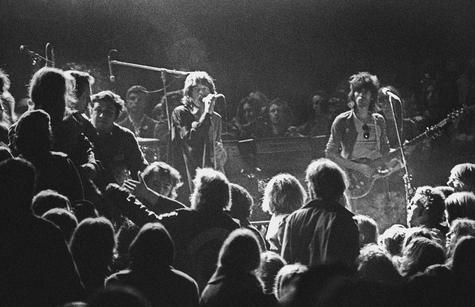
I started work in 1971 at Sevicke-Jones (founded 1905) in Chancery Lane for Hori Collett. In 1999 John Hulme and I started Veale and Hulme in Gloucester St. John (Hulme) retired about eight years ago. I had Merivale Optical and now I’m at Shirley Optometrists.
You graduated in 1970, and even before then optometry enabled you to see the world didn’t it?
I went to Berkeley (University of California, Berkeley) halfway through my optometry degree for about five months on a research project. I was there when Woodstock was happening. I went to the concert at Altamont (on December 6, 1969) where the Rolling Stones were playing. A black guy got killed by the Hells Angels (18-year-old Meredith Hunter). Everyone was taking acid and mescaline. I didn’t do any of that. I just wanted to find a bar. In 1972 I did a six-month OE while at Sevicke-Jones. I worked in South Africa in 1972 and I also worked in London for John de Carle. He developed the first permalens, the soft lens you can leave in your eye.

The ophthalmoscope designed by Hermann von Helmholtz (in 1851), it’s still around. Trial lenses (manufactured by Curry & Paxton Ltd. London, England) are Newtonian, the optics haven’t changed. Today the eye chart is electronic but when the power goes out or the computer crashes you can just use this cardboard chart. I learnt how to use a retina scope in South Africa. I can tell you what’s wrong with your eyes in a couple of seconds.
That said, there must have been some significant technological advances though . . .
I was one the first optometrists to get lasered about 30 years ago. I was myopic and when I was doing a lot of climbing and sport and stuff, diving and running marathons I wanted to get rid of my glasses so I got lasered to see more clearly. You’ve also got an OCT (Ocular Coherence Tomography) machine. Most of the optometrists have got them now. It’s an imaging method used to generate a picture of the retina.
What about your own innovation, the Hamilton-Veale Macular Check?
I designed it about 15 years ago. It’s a test grid pattern, one of the best indicators that something is wrong. The macular is the small part at the back of the eye which does all the fine detail seeing. Macular degeneration is the biggest eye problem we’ve got in the Western world because as we get older the macular deteriorates. If there’s anything wonky the (grid) squares will be distorted.
What other major issues do you deal with?
Every week I’d have two or three people with cataracts and you refer them on to the hospital. Glaucoma is rarer because 10 per cent of the population of New Zealand over 70 years of age have elevated pressures but they don’t necessarily have glaucoma. Diabetic retinopathy is going to be the biggy. It’s an eye condition that can cause vision loss and blindness for diabetics.
Has the proliferation of computer screens had a detrimental effect on our eyesight?
Eyes are very resilient, they’re as tough as old boots. We can’t find that actually looking at a computer screen or phone does any serious damage to your visual system. What happens when you’re on the computer is you don’t blink as much. In an air-conditioned office your eyes can dry out. I used to get people to stick a piece of paper in the corner of their computer with ‘blink’ on it.

No, I was always interested in other stuff. I never met Fred. He died too soon (in 1993, at 63 of cancer in Sydney). I know a lot of the guys in the Fred Hollows Foundation. Fred made his mark in Australia, great guy.
A meeting with Christchurch physician Dr William Grut led to your involvement with Rose Charities and a heart-warming association with Cambodia didn’t it?
We started a clinic in Phnom Penh from scratch 20 years ago and now it’s the biggest eye clinic in Cambodia. We took up old gear to get them started. We went up once or twice a year, raised money for them and now they’re completely self-supporting. It was a real buzz to see the thing growing.
Dr Grut reached out because he knew you had already worked overseas in disadvantaged communities hadn’t you?
In 1982 or ‘83 I went to Tonga and then I went to the Cook Islands in 1986. I’ve been going to the Cook Islands ever since then. NZ Aid (New Zealand Agency for International Development) has an eye team, there’s about eight of us. I go to the outer islands, gather the pathology and bring it to Rarotonga. They do a big diabetic screening programme up there. There’s also an orthopaedic team, a dental team, a psych team. They go up for two or three weeks because Cook Islanders have got a New Zealand passport and what do they do? We used to send lovely mama down to Auckland, give her an appointment to go to the hospital. She’d go down to the family and family is more important than her eyes and she’d spend all her time looking after all the kids and everything and always missed the appointments. Then we decided we were going up there.
On one of your trips to Rarotonga in 2019 you had your own eye issue didn’t you?
I got on the plane and I thought something’s wrong, my sight was blurred and I knew I was having a detached retina. The retina just peeled off and I was trapped on a four-hour flight. When I looked out the window with my good (right) eye covered I could see things but there was a distinct black edge with an orange border in that nasal quadrant.
You made it home to Christchurch and soon realised what it was like to be a patient rather than a practitioner didn’t you?
Jim Borthwick spent two hours reattaching my retina, he saved my sight. But you have to lie on your side for 10 days while it sort of sealed itself. I was the worst patient in the world. You could only get up for five minutes to get a cup of tea, a sandwich or to go to the loo.
Still, it could have been worse. The procedure to remedy a detached retina is certainly more user-friendly these days isn’t it?
The surgery has improved out of this world. In the old days they used to squeeze your eyeball and they’d put a piece of string around it and tighten it down.
Is there still a future for independent optometrists since the advent of Specsavers and OPSM?
Very definitely but we’ve certainly lost a huge chunk of the market. They can bring 10,000 frames in from China, we can’t compete on price. But independent optometrists are still going very well in Christchurch because – and I don’t want to be disparaging – they (retail chain optometrists) employ young optometrists who are just out of university. I get two or three people a week who say ‘I’m not going on there again’. They’re all good people and they’re very well-trained but they don’t have the rapport with people who are 50, 60, 70, 80 or 90. For the last couple of years I’ve been told: ‘Don’t you dare retire John. My doctor’s retired and my dentist’s retired.’ But the time has come.
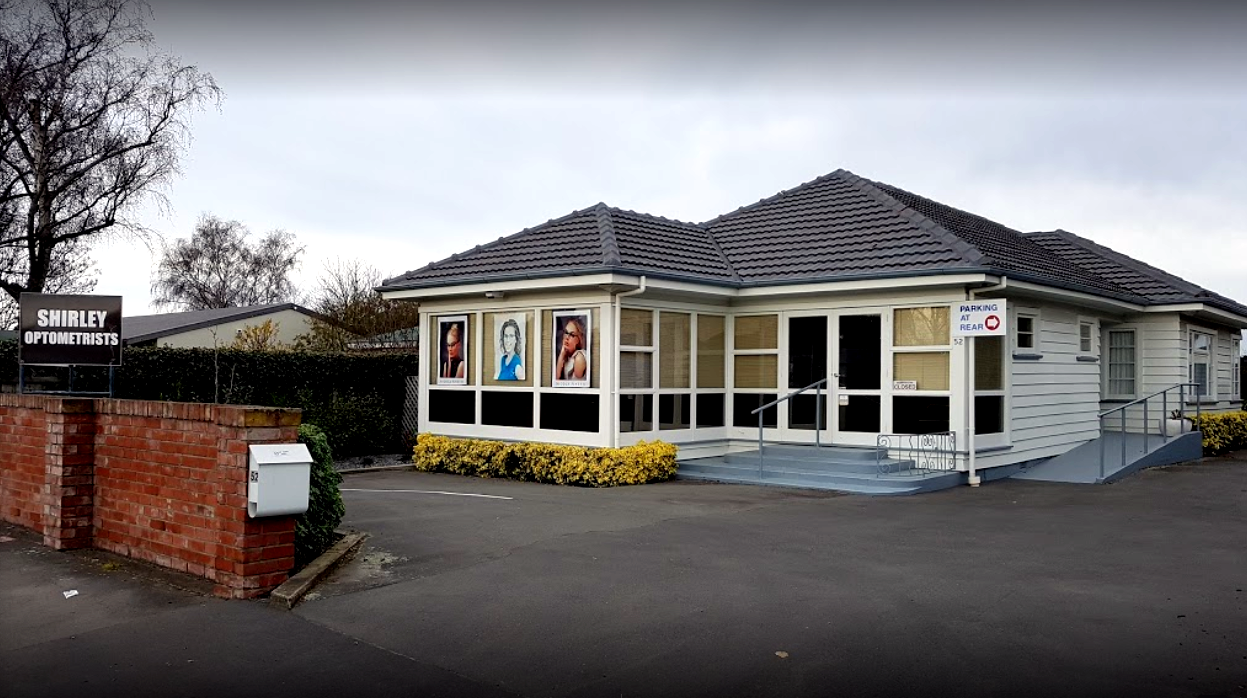
There are two or three practices run by older people like me who’ve managed to get someone to take over. I’ve rung everybody, they just don’t want it. The gear is going into a container tomorrow (Friday). Some of it will go Trade Me. I’ll probably take the frames up to the islands.
Would you recommend the profession to a prospective optometrist today?
It’s been a great profession but the trouble is the young ones, and I don’t want to sound like I’m griping about them, but they don’t want to do the hard stuff. They want to go and work for Specsavers and make a hundred grand. They won’t do home visits. That’s what I’m probably going to do when I’m out of here. If Mrs Smith is bedridden I’ll go and test her eyes at home. The young ones are not allowed to do it. Specsavers says there’s no money in that, we can see three people in the time it takes you to drive to Halswell to see Mrs Smith.
What other plans do you have for your retirement?
I’ll be doing two clinics a month at the Low Vision Clinic at Burwood Hospital and Southern Eye Specialists. I started the (low vision) service there in 1986. Low vision is when you’ve done everything but you’re not seeing as sharp as you’d like to see. Low vision has really been neglected in the country and I’m still pushing away.
To that end you’re trying to get a mobile service set up aren’t you?
The aim is to start a mobile service. It would screen people for diabetic retinopathy. Diabetes is going like this (he points upwards). Why would you want to go to hospital to get a photograph taken of the back of the eye which takes five minutes? You could put the machine in a van, you take it to the supermarket and it’s done.
You’ve struck some obstacles with this project haven’t you?
When I wanted to do the mobile clinic I went up to see them (Ministry of Health officials) about four or five years ago. They’re shockers. I sent email, after email after email with ideas to save them money. They never replied to any of my emails. I finally got up there, I gave them my business plan and they came back to me two weeks later and told me ‘We’ve got no money’. I wanted about $300,000 for the mobile clinics, to save thousands. These guys are on $250,000 a year, sitting on their bums having cups of tea and coffee and going to meetings. They’re bastards in Wellington. It doesn’t change from government to government does it?
So the Government could clearly do more?
In England you get a free examination on the National Health Service every two years. It’s the same in Australia. The association (New Zealand Association of Optometrists) has tried to get the Government to do that but no. So that leads to problems. People leave it too late and they’ve got an eye condition which is harder to fix.
How is your eyesight faring these days?
My right eye is still perfect, my left is a little bit sticky. I’ve had three surgeries on it for two detached retinas and cataracts.

In 1980 a mate of mine (Phil James) came back from his OE and we started tramping. We decided to tramp all the possible passes from east to west (on the South Island). We did the Graham Saddle (in the Aoraki/Mt Cook National Park and then we thought ‘We better climb Mt Cook hadn’t we?’ So we did. We went to The Hermitage, had a beer and we did a GT (grand traverse) up the south-west face, and back down again.
Your passion for mountain climbing and trekking didn’t peak at that point did it?
I’ve climbed more than 10 mountains in New Zealand more than 3000m feet. I’ve also done Kilimanjaro (Tanzania) and the highest mountain in Europe: Mt Elbrus (5642m) in Russia. We also went to base camp on the Nepalese side. I didn’t want to climb Mt Everest so we climbed Kala Patthar, right up the Khumbu at the ice fall. We walked the Queen Charlotte Track the other day and I limped away. I need a new hip. I’m doing a tramp in the Wairarapa in April. I’ll just take a lot of pills, I don’t think I’ll have the hip fixed by then.


